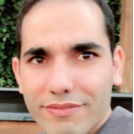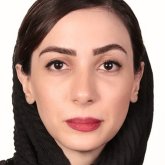PhD Candidate Disaster responses in near real time from UAV and SAR satellite data
The University of Twente wants to be an organisation that optimally deploys diversity, talents, and capabilities in the labour market for now and in the future. In the framework of our diversity and inclusiveness policy, we strongly stimulate people with a (work) disability to apply for this position.
The University of Twente is committed to providing a working environment where everyone is valued, respected, and supported to progress. Our priority is to ensure that no one is disadvantaged based on their ethnicity, gender, culture, disability, LGBTQ+ identities, family and caring responsibilities, age, or religion. We encourage everyone who shares these values to apply.
Natural and human-made disasters can cause widespread devastation in urban areas, impacting thousands of lives and resulting in extensive property damage. In densely populated areas, rapid and accurate assessment of structural stability, i.e. the stability of man-made structures like bridges and buildings, is important for effective emergency response. Providing reliable recommendations is critical to ensure swift, informed decisions to minimize harm and expedite recovery. These should help first responders to make the decisions on where and when to prioritize their activities. Careful monitoring and dedicated analysis offer the proper background to guide such response strategies, ultimately saving lives and reducing overall damage.
Multitemporal Synthetic Aperture Radar (SAR) images contain important information well-established for structural stability or health monitoring. Such technologies, like SAR interferometry (InSAR) and SAR tomography (TomoSAR), can provide information on urban structure elevation and subtle deformations or stability issues. This information, however, is often sparse in time or space as it relies on identifying coherent scatterers. The use of AI and quantum computing to integrate SAR-derived products with real-time UAV optical data can offer reliable recommendations to prioritize areas where first responders are needed.
The HURRICANE project, funded by Horizon Europe, focuses on real-time intelligence for crisis and natural emergencies. It brings together scientists and partners from a multidisciplinary consortium of 15 partners and it addresses the limitations hindering the adoption of innovations in the field of real-time awareness. One of the project's primary objectives is to combine space-based SAR data with real-time UAV optical data to provide reliable near-real-time recommendations for first responders. Addressing this research question will be the main objective of this position.
You are encouraged to conduct interdisciplinary and innovative research in the field of SAR remote sensing and machine learning. Additionally, you will attend project meetings, liaise with project partners and the public, and contribute to the education programs at ITC.
The project is set to commence on January 1, 2025, and will run for four years. You will be expected to develop Python-based automation code to generate near-real-time recommendation maps by the end of December 2027.
Information and application
For more information about the position, you can contact Dr Hossein Aghababaei (email: h.aghababaei@utwente.nl) or Prof. Alfred Stein (email: a.stein@utwente.nl). You are also invited to visit our homepage.
For questions about working and living in the Netherlands please consult the official website of the Netherlands Government or the website of the Expat Center East Netherlands.
Please submit your application before 20 October 2024. Your application should include:
- A motivation letter (maximum 2 pages of A4), emphasizing your specific interest, qualifications, and motivation to apply for this position
- Curriculum Vitae (including a list of publications and the names and contact information of two references)
- A copy of your MSc diploma (if applicable) and a transcript of your courses and grades.
Short-listed candidates will be invited for an (online) interview, where they will be required to present their proposed strategy for addressing the research questions of this project. Job interviews will take place in the first week of November.
About the department
The department of Earth Observation Science deals with earth observation technology for problem-solving. Problem-solving means primarily the identification of solutions for large-volume producers of geo-information and the identification of solutions for application domains. The department is involved in teaching Masters of Geo-Information and Masters of Robotics. The department is also part of the Robotics Center of the University of Twente.
About the organisation
The Faculty of Geo-Information Science and Earth Observation (ITC) provides international postgraduate education, research and project services in the field of geo-information science and earth observation. Our mission is capacity development, where we apply, share and facilitate the effective use of geo-information and earth observation knowledge and tools for tackling global wicked problems. Our purpose is to enable our many partners around the world to track and trace the impact – and the shifting causes and frontiers – of today’s global challenges. Our vision is of a world in which researchers, educators, and students collaborate across disciplinary and geographic divides with governmental and non-governmental organisations, institutes, businesses, and local populations to surmount today’s complex global challenges and to contribute to sustainable, fair, and digital societies.





